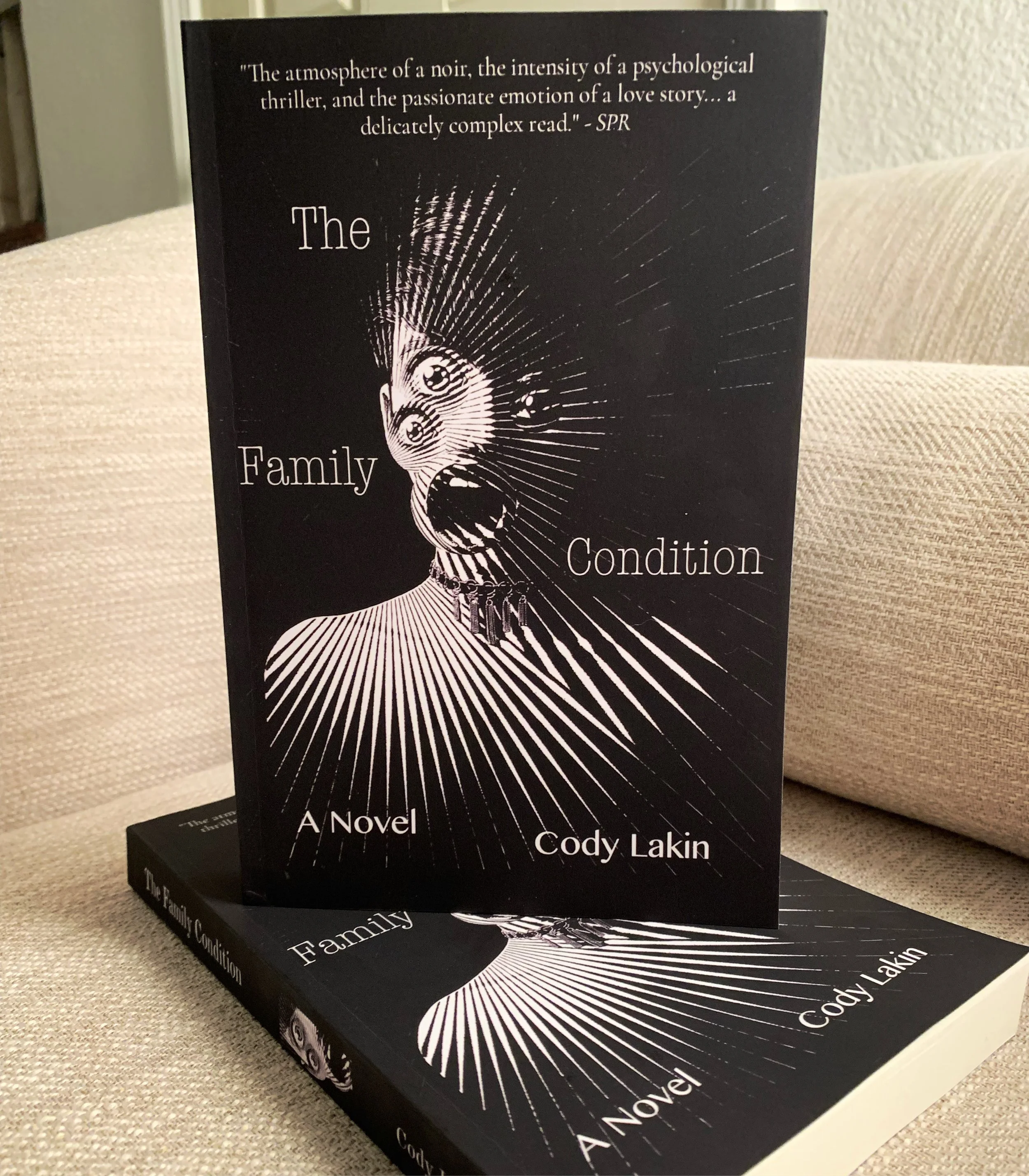What scares you? This is a question that hovers around the horror genre. As a horror writer, it’s something I often have to ask myself—and, worse, I have to be willing to be honest about it with myself. What scares you? What truly scares you?
When I began writing The Aching Plane in early 2022, it was with a renewed passion for the writing process. I’d been in a slump for a long time, writing poetry more often than working on any larger projects, and when I did attempt to engage with any ideas for a book, the process was joyless. I’d given into too many pieces of conventional, practical wisdom. I was keeping track of my daily word count; I had stopped writing by hand and was typing directly on the computer; I was thinking too much about an imagined audience’s reaction to the story; all of that and more. A series of difficult, emotional experiences made it clear to me how much I needed my own writing, and so I decided: Damn to all of those things. There was a time I was in love with the writing process, so I decided to go back to my own basics. Pen to paper. No more tracking daily progress except for what I could see on the page. No more thoughts of future publication or possible audience reaction. What’s the book I really want to read? How much fun can I have writing it?
What scares me? What really scares me?
Going into the writing of the story, two books haunted the process. The first was The King in Yellow, by Robert W. Chambers, an early, pre-Lovecraft classic of weird fiction and cosmic horror, and a major inspiration on HBO’s first season of TRUE DETECTIVE, a show I’ve seen a ridiculous number of times. For a book from the late 1800s, it’s written with surprisingly accessible prose, with stories filled with decadence, longing, heartache, and truly ambiguous horror.
The other book was one that has become a cherished favorite: The Fisherman, by John Langan. Reading that book was like finding a kindred spirit, a true friend. It set me on fire with a love of the genre and of that type of writing, since it seemed to embody what I love most to read and want most to write. Its shattering scale, and also its deeply human intimacy. It felt like a wake up call, too.
For years I’d been trying to write what I called “philosophical horror,” but I kept coming up short. The things that scare me tend to be more philosophical in their implications, more intellectually existential, if I may risk sounding silly. The horror novels that tended to leave the biggest impact on my mind and heart were those which made me feel small and insignificant, and which took away meaning from my experience as a human being. It’s probably no surprise, then, that I’ve suffered from depression, or depressive episodes, for a large portion of my life. In the midst of depression, the world seems to lose its color, and the things that normally interest me and bring me joy—even writing—fade into numbness, too. It’d be terrifying, except depression brings a sobering nullity, and emotions become subdued or else vanish entirely, for a time. It’s only when outside of the depression that I’m able to see all of this clearly, and with it there’s always this lingering fear: What if, when I’m depressed, I’m seeing the world for how it truly is? I know this isn’t true, of course, but knowing rarely makes it easier.
And so, what I’d been calling “philosophical horror” at a young age was something that already had a name, or a few names, the main one being: cosmic horror. Going into my new book, I wanted to step into that genre knowingly, rather than stumbling around its edges the way I’d been doing without realizing for so long. And I had, within the genre, the tools to ask myself fully:
What truly scares you?
In the world of Robert Chambers’s The King in Yellow, many of the characters are gripped by longing, sorrow, despair, and madness. Some of them have achieved a kind of enlightenment, but that enlightenment is indistinguishable from madness. Those are all feelings and experiences I can understand, and are some of the main ways that this book is inspired by The King in Yellow. That, and I also really wanted my own Carcosa.
For all the fun I had writing The Aching Plane—and I did, as it reawakened my love for the writing process and became an embodiment, for me, of the wisdom Write the book you want to read—the story also was a way of writing about some of my own deeper philosophical fears. And for all the ways it was inspired by works of cosmic horror, it is also, I feel, a work of contemporary literary fiction, inspired in parts by my own life and by some of my favorite books, especially the works of Sally Rooney. Which, ultimately, does give me some anxiety over how this book might be received, but more so makes me excited and filled with hope that it’ll find readers who may love it as I love it.
The Aching Plane will be out mid to late October. My next post will likely be to officially announce its release date as well as, hopefully, its availability for preorder.
Thank you so much for your time :)
